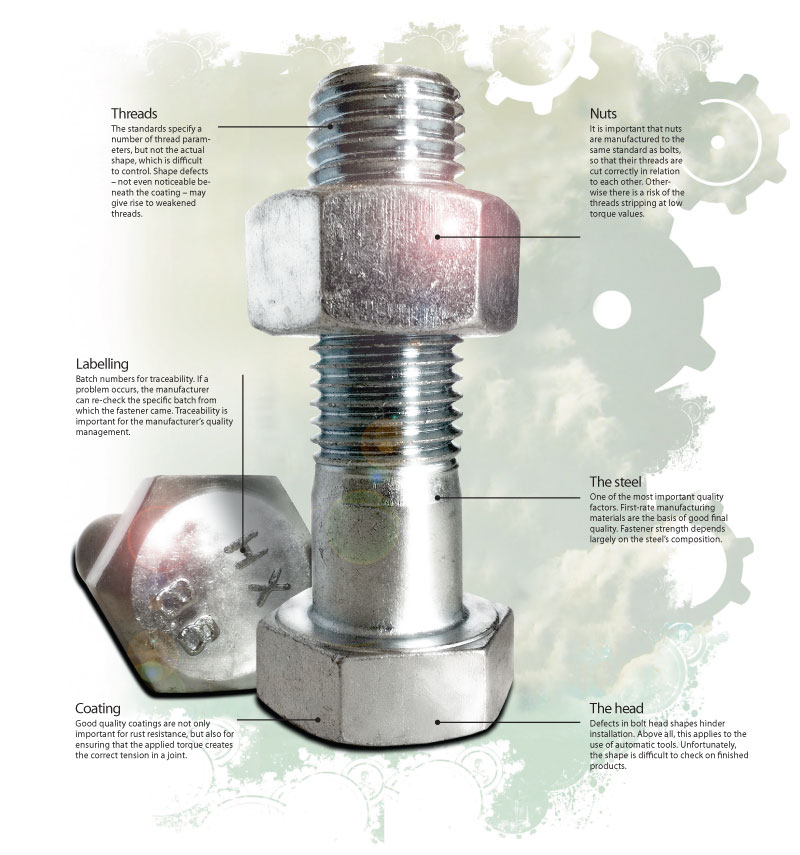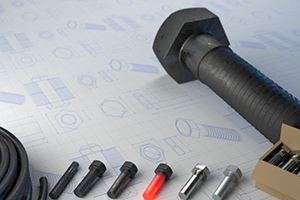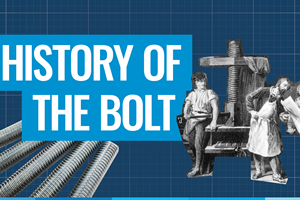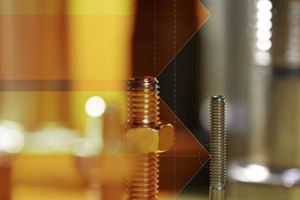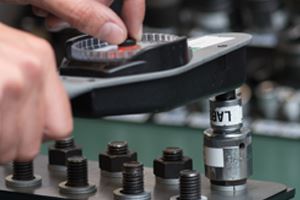Fastener quality: All in the details
Quality fasteners are essential for safe, economic designs. But what determines quality, and how do we make sure we obtain good quality? Bolted has conducted an in-depth study of the subject.

If the wheel nuts on your car come loose while you’re driving, the whole car will probably sustain damage. If a fastener in the engine breaks the entire car is also at risk of sustaining damage. The consequences of a fastener failure tend to be significant.
“Joining parts together is one of the most critical steps when delivering a product or a system. And the fastener is the key component in this,” says Maxime, Global R&D Director at Nord-Lock.
It is absolutely crucial that fasteners fulfil their function. They must be safe and dependable throughout the product’s life cycle, and this is where the quality concept enters the picture.
When we use poor quality fasteners there is always a risk that parts cannot be assembled at all, or that they break during assembly. However, the most serious consequences often occur when everything seems to be in order during assembly, and the poor quality gives rise to faults at a later stage. This may be corrosion, loosening or fastener failure due to metal fatigue.
“We have seen many such cases where people have installed fasteners in good faith only for them to fail later,” says Bengt Sehlå at the Swedish Institute of Steel Construction.
For example, the less experienced manufacturer may accidentally expose fasteners to so much heat when applying a coating that hydrogen migrates into the steel causing embrittlement and steel strength to fall below the stamped value. The first step in ensuring good quality is to choose fasteners that meet the relevant standards. For example, in Europe all construction materials must be CE-marked, which entails their conformance with basic function and safety standards and compliance with prescribed inspection procedures.
“But there may be manufacturers that CE mark their products without having the right to do so, which is why it’s advisable for purchasers to frequently carry out random sample tests to see if the fasteners meet their standards,” says Bengt Sehlå.
Unfortunately it’s not possible to inspect every single fastener as it is often a matter of very large quantities, and the tests destroy the fasteners. There are also parameters that are difficult or impossible to check on the finished product, and which are therefore not covered by the standards. The best thing the purchaser can do to ensure he gets good and consistent quality is to set up a quality acceptance level depending on the potential consequences affecting the final product and accept only lower quantities of defected fasteners (PPM) from the manufacturer.
Manufacturing fasteners is a very complex process. A fastener is not just an object but a product that must fulfil its function safely and reliably. Every stage of the manufacturing process is important to final quality, some stages more so than others.
Supervision of the manufacturing equipment is an important element to verify consistent quality. If a machine performs the same operation on bolt after bolt, then its load curve should appear identical every time the machine carries out the operation. If the load begins to deviate from the usual curve it’s time to stop the machine and look for the problem.
The stage most critical to quality depends on the type of fastener. For nuts and bolts, thread rolling and the coating are good examples of critical stages; the coating, because it often involves temperature variations that may have an adverse affect on steel strength. It is also important that the coating is good, particularly in respect of its capacity to grip the steel, as well as its ability to ensure sufficient friction. It is friction that determines the amount of tension in a joint when it is tightened to a given torque.
“A poor coating may induce a higher or lower tension than anticipated,” explains Maxime.
Excessive tension may cause a fastener to shear during assembly, while insufficient tension may lead to bolt loosening or fatigue failure at a later stage.
However, for washers it is the final coining that is of greatest importance. A quality-conscious manufacturer will naturally make certain that every stage of the manufacturing process is checked, and be extra thorough with those stages that are especially critical.
The quality initiatives of a manufacturer should also extend beyond the factory. Batch numbers on every fastener permit traceability, which forms an important part of the total quality management system. If a customer suffers problems with a fastener the batch number allows the manufacturer to re-check the manufacturing batch and perhaps identify the root cause of the problem. Sometimes it is also advisable to notify other customers that have purchased fasteners from the same batch.
So, as customers what do we do to make sure we’ve bought good quality fasteners? Identifying certification carried out by 3rd party bodies can be helpful in the search for quality-conscious manufacturers. The certification is a guarantee that the company fulfils precise standards.
Maxime recommends the purchaser chooses fastener suppliers that can prove they meet the required standards and have approvals and certificates from different industries.
“I would ask the manufacturer how he could assure me that all his products fulfil performance requirements.
Are there any occasions when the choice of high-quality fasteners is of the utmost importance?
“Perhaps in structural applications for bolts exposed to high loads, temperature variations, shocks or vibrations, where safety really matters. But in my opinion, safety matters every time,” says Maxime.
Business arguments
- High quality fasteners guarantee high safety levels.
- High quality fasteners have the correct shape which aids installation, especially where automatic tools are used.
- High quality fasteners have good coatings that protect against corrosion, which reduces the requirement for rust damage inspections.
- High quality fasteners significantly affect life cycle costs. In the long run, they save you money.
